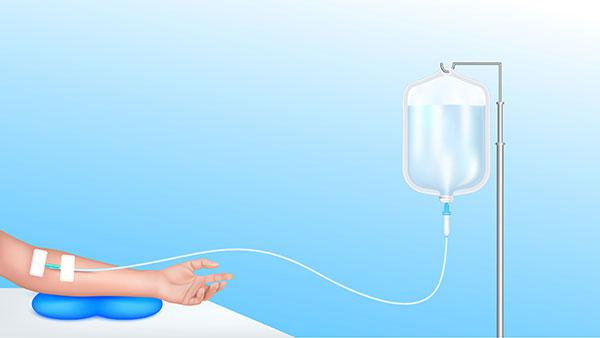 Dental and maxillofacial surgical treatments are essential to your oral and overall health. Oral and maxillofacial surgeries can make a person feel a little apprehensive due to the fear associated with it or even because of the instruments being used. Anxiety related to oral surgical procedures can be a considerable obstacle to proper oral and overall health.
Dental and maxillofacial surgical treatments are essential to your oral and overall health. Oral and maxillofacial surgeries can make a person feel a little apprehensive due to the fear associated with it or even because of the instruments being used. Anxiety related to oral surgical procedures can be a considerable obstacle to proper oral and overall health.
Although every surgery is performed under local anesthesia, IV sedation sometimes becomes necessary. Now, many of you may need to be made aware of this particular form of anesthesia; therefore, in this blog, we will discuss everything you need to know about IV sedation at Phoenix Oral & Facial Surgery.
What is IV sedation?
IV sedation is a form of conscious sedation which helps you feel relaxed and calm during your surgical appointment. Conscious sedation through IV does not intend to put you to sleep. It only makes you feel comfortable, makes you less aware of your surroundings, and inhibits pain while also leading to some form of temporary amnesia, meaning you won't remember what happened during the procedure once the sedation wears off.
IV sedation is also known as Monitored Anesthesia Care (MAC) and is usually utilized for short surgical procedures performed on an outpatient basis. This form of sedation is used for surgeries where local anesthesia may not be enough, but general anesthesia is not necessary. This means your surgeon may recommend IV sedation for wisdom tooth removal, implant placement, bone grafting, biopsies, etc. Read ahead to find out more about how this form of anesthesia works and how it can benefit you.
 How does IV sedation work?
How does IV sedation work?
Whether you are undergoing a wisdom tooth removal or getting an implant placed, you can opt for IV sedation. The process begins by securing an IV line; a thin needle is inserted near the skin's surface, usually in the arm or the back of your hand. Next, the medical tape is used to secure the needle, and a line is attached from which medications and fluids enter your veins and into the body. This needle will stay inside your vein throughout the procedure. You will begin to feel the effects of IV sedation within minutes after the drug is injected into the body.
The most commonly used drugs for IV sedation are:
Benzodiazepines
This group of drugs is one of the most commonly used for IV sedation. These drugs' main effects are reduced anxiety, sleepiness, and amnesia.
Opioids
In some instances, opioids may be used as an add-on medication to a benzodiazepine. These further contribute to a sedative effect and reduce the dosage of other sedation medications.
IV sedation drugs are fast acting and wear off quickly. These drugs produce a state of deep relaxation during your treatment. You may feel a little sleepy but will be conscious; thus, this form of sedation is also termed conscious sedation. The airway remains patent, so there is no need for external airway management as used in general anesthesia cases.
What does IV sedation feel like?
Once the drug enters your body, you will begin to feel its effect within a few minutes (2-5 minutes).
Your breathing will slow down, and your blood pressure may also drop a little. A nurse will be continuously monitoring your vitals to ensure you are stable. Although no artificial airway is needed, you may receive oxygen through a nasal tube.
Initially, you will feel a little heavy in the head, which will be followed by a sense of deep relaxation of the body. A feeling of ease will take over, and you will be more comfortable. You will have minimal to no awareness of your surroundings so that you can relax. The onset is quick, and so is the recovery. You may feel sleepy, but you will be able to respond to verbal cues. Overall you will be relaxed and calm.
Benefits of IV sedation
If you are still wondering how IV sedation can benefit you, then keep reading ahead.
- Deep level of sedation
IV sedation produces deeper sedation than nitrous oxide, which ensures greater comfort, pain-less, and a smooth surgical experience.
- Fast acting
The intravenous administration of drugs allows for faster action. They work quickly, usually within a few minutes.
- Quick recovery
The recovery from IV sedation is much faster in comparison to recovery from general anesthesia.
- Relaxation
You will experience complete relaxation, which makes it easier for you to handle the mental as well as the physical stress of the surgery.
- Amnesic effect
The drugs used for IV sedation produce amnesia, which means you won't remember the procedure, which further contributes to its desirability.
- A brilliant option for people with dental and surgical phobia
If you are someone who feels queasy and stressed out just by the thought of dental procedures, IV sedation may just be for you. Dental and surgical anxiety can be debilitating and keep you from getting the necessary treatment you need.
 What to expect after IV sedation?
What to expect after IV sedation?
Once your surgery is completed, the drugs will be stopped, and you will begin to recover from the effects of sedation. You will feel a little groggy and even may have a headache. A little stomach upset may also be there, which is completely normal after IV sedation.
It is important to remember that you may have residual effects of anesthesia for up to 12 hours after your procedure. So, it is recommended that you have a trusted family member or friend accompany you during your procedure and take you home after. Please make sure you rest and sleep properly after your procedure for an uneventful and smooth recovery.
If you have any more questions or would like to know more about our services, please reach out to us at Phoenix Oral and Facial Surgery. Dr. Alexander Kim and our team of excellent professionals are here to assist you and your family in excellent oral and overall health.

